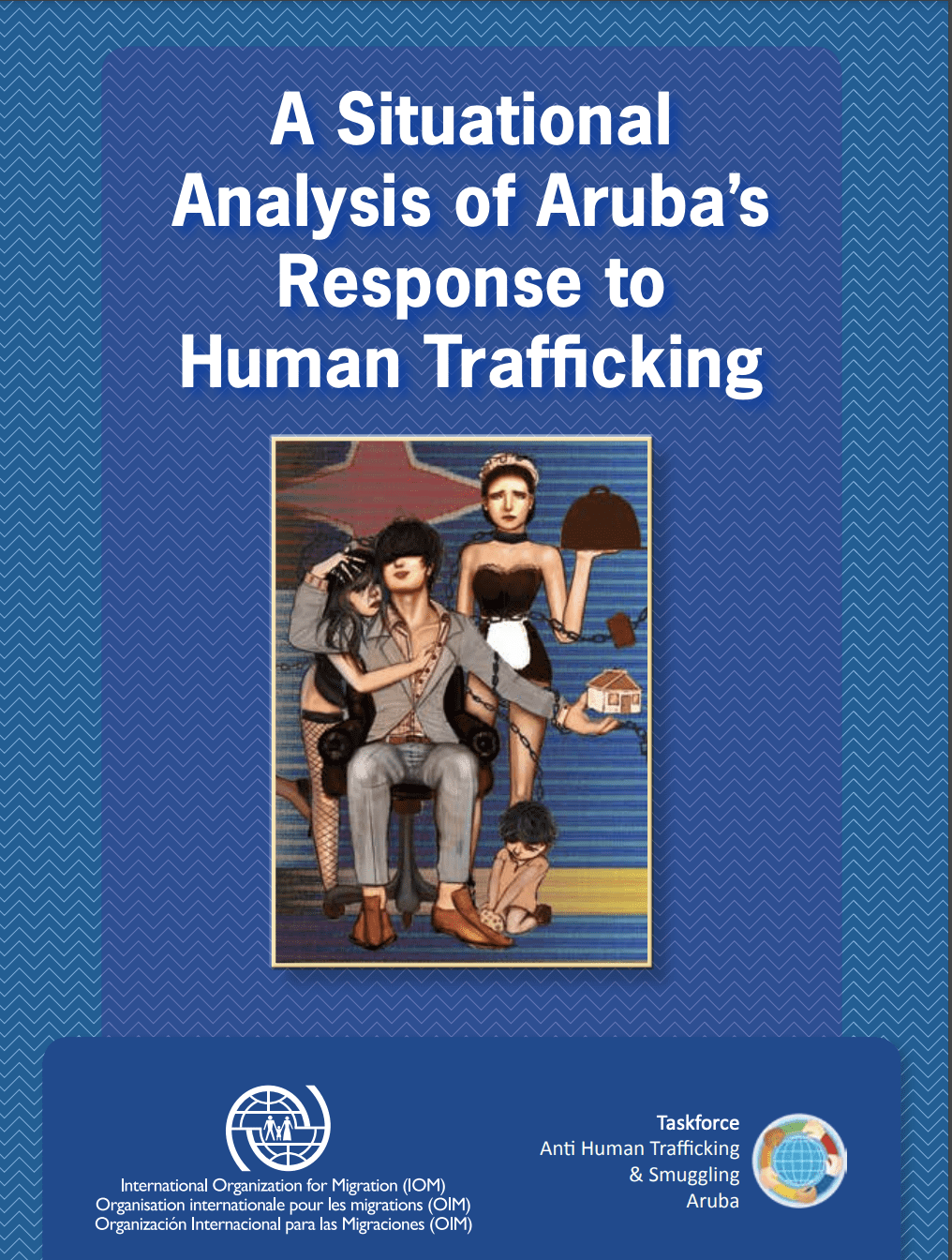
A Situational Analysis of Aruba’s Response to Human Trafficking
Executive Summary
Human trafficking is a complex crime wherein the exploitation of human beings is central. Around the world efforts are being made to counter human trafficking. Such a complex crime requires an integrative approach that brings together various disciplines and perspectives. Countries around the world, including Aruba, have recognized the need for such a multidisciplinary approach. Also important is international cooperation, as human trafficking can involve the crossing of international borders. Through treaties such as the UN Protocol to Prevent, Supress and Punish Trafficking in Persons, the international community urges countries to focus on three elements when fighting human trafficking: 1) the prevention of human trafficking, 2) the protection of victims of trafficking and 3) the prosecution of traffickers. This paper analyses Aruba’s response to human trafficking, focusing specifically on the three aforementioned elements and determining to what extent it is structured by identifying the strengths and weaknesses in Aruba’s laws, policies, procedures, practices and partnerships.
As this Situational Analysis helps to note, clearly Aruba has invested much energy and resources in the fight against human trafficking since the introduction in 2006 of a human trafficking article in the Aruban Criminal Code. Through the formation of a Taskforce committed to fighting human trafficking and the introduction of a National Coordinator to supervise and coordinate efforts, Aruba has achieved a great deal towards these ends. Aruba has organized awareness campaigns as part of its prevention efforts, has assisted victims of trafficking and is committed to prosecuting traffickers, albeit no convictions have yet been made (as of December 2012). Through cooperation with other countries within the Kingdom of the Netherlands, the Aruban Government has been able to protect victims of trafficking. This cooperation has also assisted Aruba in setting goals and monitoring efforts against human trafficking.
Despite many of the great efforts that this Situational Analysis highlights, there are specific areas that Aruba needs to improve, such as increased visibility on domestic workers by government departments, more contact with and information for newly arrived immigrants, and written policy regarding prostitution in all its forms. The Government of Aruba, in addition, should consider formalizing cooperation with non-governmental organizations (NGOs) in charge of sheltering victims. Moreover, it is necessary for government departments and agencies, NGOs and other groups to receive training on identifying victims of human trafficking. Aruba should continue its efforts to fight human trafficking and strive for a more structured response. It is therefore recommended that the position of the Anti-Human Trafficking and Smuggling National Coordinator be a full-time one and a budget allocated for efforts against human trafficking. These are just some of the major recommendations in this Situational Analysis.
Read more here.
